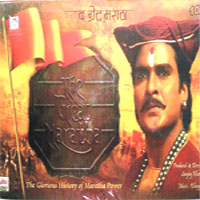This article needs additional citations for verification .(February 2025) |
| The Great Maratha | |
|---|---|
 | |
| Genre | Historical drama |
| Written by | Sanjay Khan Mohafiz Hyder Reoti Saran Sharma Manoher D. Malgonkar |
| Directed by | Sanjay Khan |
| Creative director | S.M.Sadiq |
| Starring | Shahbaz Khan Parikshit Sahni Farida Jalal Tom Alter Irrfan Khan Mrinal Kulkarni Kartika Rane Mukesh Khanna |
| Composer | Mohammed Zahur Khayyam |
| Country of origin | India |
| Original language | Hindi |
| No. of seasons | 1 |
| No. of episodes | 47 |
| Production | |
| Executive producer | S. Mirza Khan |
| Producer | Sanjay Khan |
| Production location | Samod |
| Cinematography | Tony Rode |
| Editors | Sushil Deshpande Zahir Allauddin |
| Production company | Numero Uno International Limited |
| Original release | |
| Network | DD National |
| Release | 1 February – 20 December 1994 |
The Great Maratha is an Indian historical drama television series directed by Sanjay Khan and produced by Numero Uno International Limited. [1] [2] The drama aired on DD National. The series is based on the life of Mahadaji Shinde. The show comprised 47 episodes. [3] The music was composed by Mohammed Zahur Khayyam.